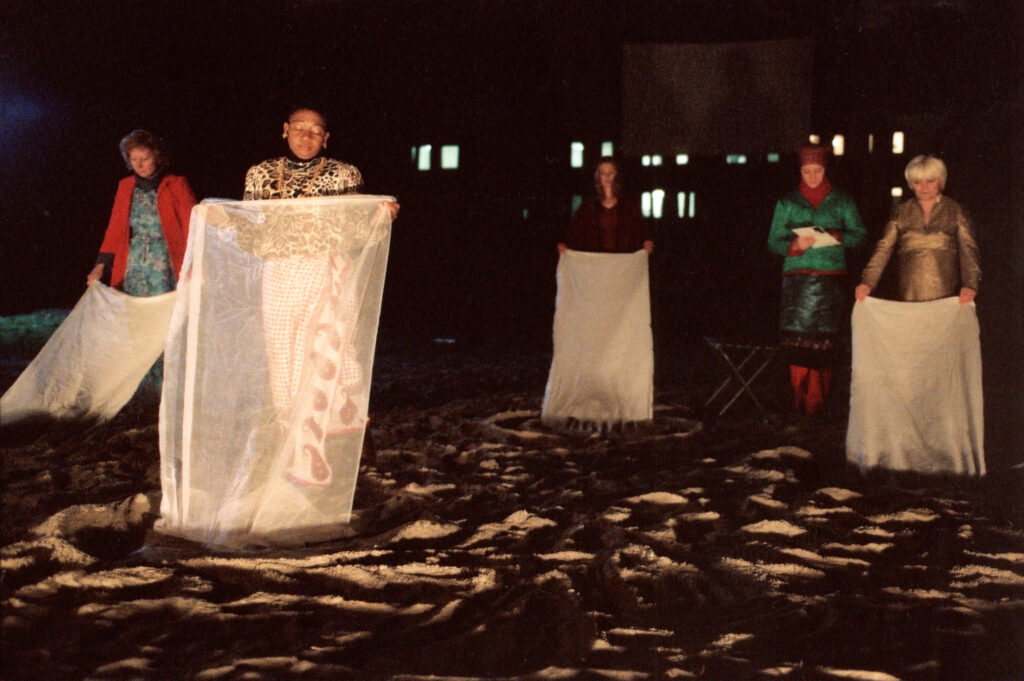With this project, we wanted to draw attention to the situation of people waiting for asylum in refugee camps. Together with my team, which included mainly musicians and artists, we stayed for six weeks in a refugee camp in the forests of northern Bohemia. We lived in the same houses as the inmates and ate the same food in the common dining room. We did not come to the camp to “perform to the refugees”. The aim was to create a theatrical form in which the artists and asylum seekers in the camp would be on an equal level in the creative process. The audience who came to the camp to see the final production could not distinguish artists from refugees on the stage. They all shared a common theme through personal stories.
During the creation, all residents of the camp became our collaborators. They had come from different countries, they spoke languages we did not know. There were people from Chechnya, Angola, Burma, Armenia, Georgia, Belarus, China and many other countries.
Their English was usually very weak, they knew only a little Czech. They were people unable to foresee their near future. How to invite them to collaborate in such an endeavour? How to create an environment of trust? How to transform their boring and frustrating everyday reality, reinforced as it was by frequent contact with officialdom and repeated rejection of requests for asylum?

We ate together, we talked about everything happening there, we played football, those who were able to play musical instruments played with our musicians on a bench. The managers of the camp allowed us to use huge pots from the army kitchen. They served in the show as percussion.
And what would it all be about? About common experience. About finding common ground with people with whom we share neither culture nor history. About the experience of being on the way to a better life but leaving your loved ones behind. I think that the strongest mission of the final production was the ability to communicate. The performers, in spite of language and cultural barriers, were able to create strong theatrical images together.
Key Takeaways:
In the refugee camp, we started from “point zero”. We had to respect the reality of the life there. That is why we absolutely avoided forcing a “theme” into the creation. Rather, we just experienced living there together with the camp inmates. We tried to start from a shared situation, a shared experience. Eventually, just as the selection of the pots one by one set up tuned percussions at the end, the personal stories were tuning a common theme: If you leave your home for any reason, you are always leaving loved ones behind. With a pre-set agenda in mind, the discovery of the authentic theme would be impossible. We would not have achieved the final production in which all participants felt their contribution.
Therefore, when all the described principles are in place, the theme emerges naturally and spontaneously. You simply need to trust that it really will.